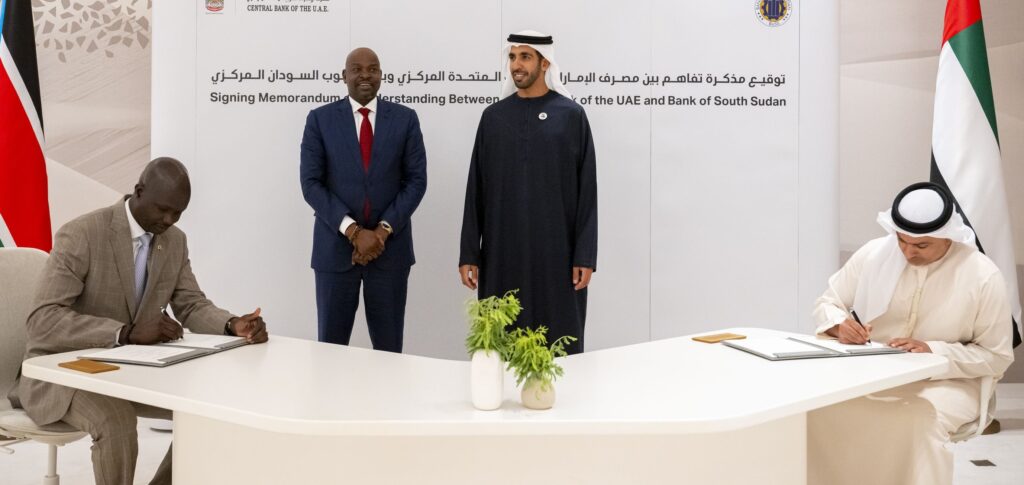The Central Bank of South Sudan and the Central Bank of the United Arab Emirates (UAE) on Wednesday signed a comprehensive cooperation agreement, granting Abu Dhabi some influence over South Sudan’s monetary operations, including the secure printing of currency.
The memorandum of understanding (MoU), signed in the presence of high-ranking officials, establishes a framework for cooperation in security printing of banknotes, payment systems, and technical training.
Sheikh Shakhbout bin Nahyan Al Nahyan, UAE Minister of State for Foreign Affairs, and Benjamin Bol Mel, South Sudan’s vice president, attended the signing ceremony.
Security printing of banknotes refers to specialized processes designed to prevent counterfeiting.
A Closer Look at the Deal
Under the cooperation agreement, the UAE’s Omlat, a subsidiary of its central bank, will oversee banknote production for South Sudan—a country struggling with hyperinflation, currency instability, and a history of financial mismanagement.
It remains unclear whether South Sudan’s government plans to replace De La Rue, the British company currently printing its currency.
Meanwhile, Al Etihad Payments, another UAE central bank entity, will develop South Sudan’s domestic payment card infrastructure in two phases.
The deal also includes training for South Sudanese banking officials at the Emirates Institute of Finance.
UAE officials have portrayed the agreement as a step toward stronger economic ties. Khalid Mohammed Balama, governor of the UAE Central Bank, said the MoU aligns with efforts to “develop strategic partnerships” with South Sudan.
Dr. Addis Ababa Othow, governor of the Central Bank of South Sudan, praised the UAE’s financial sector expertise.
The timeline for implementing the agreement remains unclear.
Last month, reports indicated that South Sudan’s central bank plans to print more money to address a severe liquidity crisis—a move economists warn could further devalue the South Sudanese pound (SSP) and exacerbate inflation.




